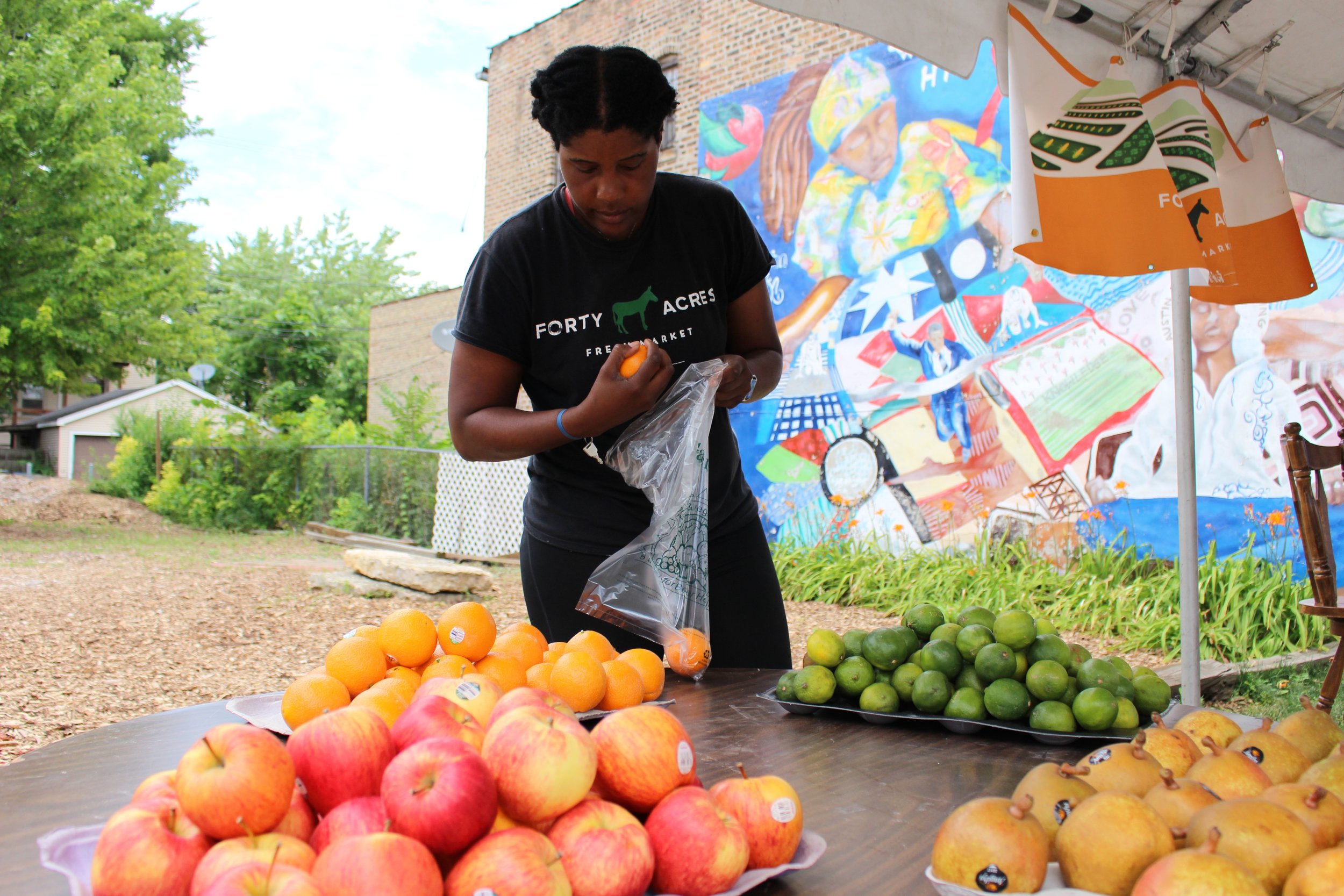
Driving Equitable
Resource Distribution
C A S E S T U D Y
A collaboration with nonprofit leaders to create a community-driven blueprint in Chicago’s Black Latino communities. The framework proposes five strategies and 14 guiding principles to ensure cross-collaboration between business, government, and philanthropy creates equitable results.
S E E K I N G
D E E P E R U N D E R S T A N D I N G
O F T H E N E E D
Research Question
How might business, government, and philanthropy cross-collaborate to ensure equitable distribution of resources to communities of color?
“Draw a map of Chicago and shade the areas with more poverty, pollution and coronavirus. It will start to look like being Black is a pre-existing condition.”
— from the article, Mapping the Disparities That Bred an Unequal Pandemic, Bloomberg.com.
Equity Framework
W H A T W E C O - C R E A T E D
The diagram above is a community-driven blueprint for equitable investment in Chicago’s Black and Latino communities. To deliver desired outcomes in health, housing, and education, the framework proposes five strategies and 14 guiding principles to ensure that the work done in the future across government, for-profit, and non-profit sectors creates equitable results.
Community-Centered
Engagement Process
W H A T W E C O - C R E A T E D
To actualize the new strategies and principles, workshop participants created new processes for resource allocation based on unique scenarios related to particular domains (employment, education, etc.). There were similarities in all the processes highlighted in the five touchpoints in the diagram above. This community-centered process is not a step-by-step process but non-linear and continuous.
S E E K I N G
D E E P E R U N D E R S T A N D I N G
O F T H E N E E D
The Process
Project
Objectives
Unearthing the stories and experiences of Black and Brown residents and other stakeholders who influence and impact the distribution of resources in Chicago.
1
Understanding the connections between inequitable resident experiences and the policies, practices, and infrastructures that influence or enable them.
2
Prototyping community-informed approaches to equitable resource distribution.
3
CBD
Methodology
Conducting 1-1 conversations with leaders across philanthropy, government, and community support organizations to identify and understand how they are currently approaching and responding to resource allocation.
1
Engaging community residents and other stakeholders in a series of two co-design workshops, making connections between
the experiences and challenges driving inequity and the policies, practices, and infrastructures that influence them.
2
Facilitating community residents and stakeholders in a series of two prototyping workshops, co-designing interventions that address the inequities faced by Chicago’s Black and Brown residents. The 1-1 conversations shaped how we framed and facilitated the co-design and prototyping workshops.
3
Co-Design Workshops
We virtually convened community residents and essential stakeholders across the City of Chicago to collectively define equity, articulate what an equitable Chicago should look like, and connect their experiences to the policies and practices that create inequitable outcomes.
Prototyping Workshops
Community residents and various stakeholders came together to identify and prototype interventions that address barriers to equity for Chicago’s Black and Brown residents.
P R O J E C T
D E T A I L S
Racial Equity Rapid Response Team
PARTNER
Systems Transformation
Anti-Racist
Innovation Strategy
PROJECT/SERVICE TYPE
8 months
PROJECT TIMELINE
4 virtual
workshops
OUR PROCESS
64
participants
"This process and resulting framework captured the urgency, love, and innovation of a cross-section and multiracial coalition of Chicagoans that came together to transform our city. It not only allowed us to dream about what is possible, but we developed clear outcomes and guiding principles of what will get us there, collectively. It's a blueprint for a multisector coalition to make racial equity real in Chicago."
— Jose Rico, Director, Truth, Racial Healing, and Transformation
To learn more about this project,
VIEW SIMILAR PROJECTS
Community-Led
Food Systems
The Future of Work
and Learning
Next-Generation Support for
Community College Students








